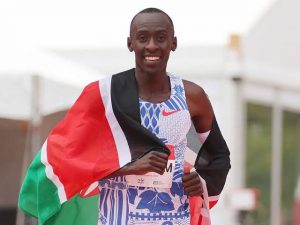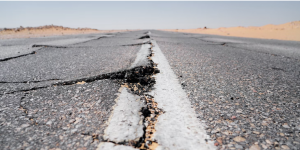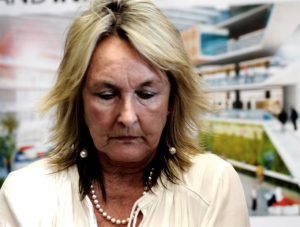Curtains! The Paralympic anthem was played before the flag was taken down at the Olympic Stadium on Sunday, putting an end to a 13-day run of events at Tokyo amid a pandemic. The final act of the delayed Tokyo Olympics and Paralympics came almost eight years to the day after the Japanese capital was awarded the Games.
While the Olympics closed almost a month ago, the colorful, circus-like ceremony at the National Stadium overseen by Crown Prince Akishino, the brother of Emperor Naruhito on Sunday put a full stop to an unprecedented multination sporting events. The closing ceremony was entitled “Harmonious Cacophony” and involved both able-bodied actors and others with disabilities. The theme was described by organizers as a “world inspired by the Paralympics, one where differences shine.”
Also read: With 3 golds, Cuban Omara Durand is the greatest female Paralympian
The Games were postponed for a year and then held in empty stands and stadiums. No fans were allowed during the Olympics, except for a few thousand at outlying venues away from Tokyo. A few thousand school children were allowed into some Paralympic venues.
“There were many times when we thought these games could not happen. There were many sleepless nights,” Andrew Parsons, president of the International Paralympic Committee, said on Sunday.
The Aftermath of the Paralympics:
Like the Olympics, the Paralympics went ahead as Tokyo was under a state of emergency due to the pandemic. Like the Olympics, testing athletes frequently and isolating them in a bubble kept the virus largely at bay, though cases surged among a Japanese population that is now almost 50% fully vaccinated.
Also read: Tokyo Paralympics: India records its best-ever medal haul
“I believe that we have reached the end of games without any major problems,” said Seiko Hashimoto, the president of the Tokyo organizing committee.
Well, these Games that Japanese Prime Minister Yoshihide Suga banked on to get a reelection bump seemed to have backfired. His approval rating plummeted after a slow vaccine rollout in Japan, and a contentious decision to stage the Games during the pandemic. Suga announced Friday — two days before the closing — that he would not continue in office.
The Paralympics may leave a more tangible legacy in Japan than the Olympics, raising public awareness about people with disabilities and the provision of accessible public space.
Record-making Games
The Paralympics involved a record number of athletes — 4,405 — and a record number of countries won medals. They also saw two athletes from Afghanistan compete, both of whom arrived several days late after fleeing Kabul.
Also read: Tokyo Paralympics: India’s Krishna Nagar wins gold in badminton men’s singles SH6
The costs also set records.
A study by the University of Oxford found these to be the most expensive Games on record. Japan officially spent $15.4 billion to organize the Olympics and Paralympics, double the original estimate. Several government audits suggested the real costs are twice that. All but $6.7 billion is public money.
The pandemic probably cost organizers almost $800 million in lost ticket sales, a budget shortfall that will have to be made up by more government funds. In addition, local sponsors contributed more than $3 billion to the operating budget, but got little return with few fans.
Next up are the Beijing Winter Olympics, opening in five month. They have been billed as the “Genocide Games” by rights groups that want the Games pulled from China because of the reported internment of at least 1 million Uyghurs and other largely Muslim ethnic groups in Xinjiang in northwestern China.
With inputs from the Associated Press






